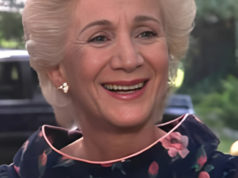Edward Neeman (USA/Australia) started the last day of screening auditions with an excellent Bach Partita in G major, doing particularly well in the slow sections of the piece. He then played Milton Babbitt’s puckishly titled but defiantly un-puckish It Takes Twelve to Tango, a dodecaphonic piece that wouldn’t be recognized in Argentinian tango circles. His best work was in Liszt’s Venezia e Napoli, a careful, precise, finely colored performance. He played Liszt as if it were Ravel, and it worked for this pianist. A professional but undistinguished performance followed from Rina Sudo (Japan), who did a fine Haydn Sonata in C major but took the opening of Chopin’s Third Scherzo too fast while slowing down too much in the chorale-like middle section. Her version of Liszt’s Spanish Rhapsody didn’t have much Spanish feel, either. Chetan Tierra (USA) came out with his hair in a frizzy perm that I don’t remember him having when he played at the Cliburn Competition in 2009. (Here’s what I wrote about him at the time.) This time around, he started out with Book I of Brahms’ Paganini Variations, which didn’t suit him and came out overpedaled. He was a better fit with Scriabin’s Fourth Piano Sonata, with his exuberance carrying him through those moments when the piece’s structure eluded him. He saved his best for last with a rousing version of Ginastera’s Piano Sonata, with a nice buildup in the slower third movement.
The evening session started with Peter Toth (Hungary), a smart, talented player who sabotaged himself with his repertoire. He came out wearing a suit with a vest and a chain in one of the pockets. I’m dying to know what was on the end of that chain. His wallet? A 19th-century pocket watch with a fob? His iPhone? Tickets to the next One Direction concert? He started off well with an unfussy, rhythmic account of Bartók’s Suite, but he couldn’t convince me that Mendelssohn’s Variations sérieuses was a piece worth expending so much effort on. The same went for his final piece, Liszt’s Réminiscences de Norma (which is based on Bellini’s opera, not on Liszt’s memories of a girl named Norma), which showcased Toth’s fine vocal line but paled next to the other Liszt performances we’ve heard. This is clearly an excellent player, but I think his choice of material might have done him in. YouYou Zhang (USA) made a tremendous impression with Brahms’ Second Piano Sonata, bringing great energy to the piece, especially an opening movement strong enough to clear your sinuses. She followed that with three Debussy preludes, capturing the Spanish feel of “La Puerta del vino” and doing some astonishingly fluid work on “Feux d’artifice.” She also has an unusual habit of turning her head to the right, facing the audience, when she’s listening intently to what she’s doing. The last applicant, Steven Lin (USA, and no relation to me) had a whole array of tics, bending way over the keys, silently mouthing singing syllables while playing, making flourishes with his hands before bringing them to the keys, and bringing them up into clenched fists after playing fast passages. The thing is, if you looked past all that, he played Bach’s Overture in the French Style really well, with an uncorked, improvisational feel that didn’t detract from the musical order. His other item was Liszt’s Réminiscences de Don Juan, another opera transcription, this one from Mozart’s Don Giovanni. Lin didn’t pretend that this was serious music, playing it instead as a piece of frippery with some opportunities for a virtuoso to strut his stuff, which is probably what the piece is. He knocked out the piece and brought the house to its feet, only the second standing ovation for the 20 performances we had in Fort Worth.
Well, it’s all in the judges’ hands now. I’ll be back on this blog to report on the 30 Cliburn contestants when their names are announced.











